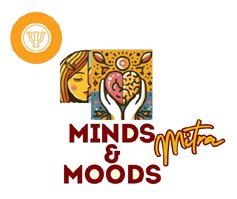Overcoming Fears and Phobias: A Path to Freedom
Fears and phobias are more than just fleeting feelings of anxiety. A fear is an emotional response to a real or perceived threat, like feeling nervous before a presentation. A phobia, however, is an intense, persistent, and often irrational fear of a specific object, situation, or activity. These can be so severe that they interfere with daily life, causing significant distress and avoidance of the feared stimulus. Some common phobias include arachnophobia (fear of spiders), claustrophobia (fear of enclosed spaces), and social anxiety disorder (fear of social situations). The brain’s amygdala, a small almond-shaped region, plays a crucial role in processing these fear responses.
Rrimi Bodalkar: Your Partner in Mental Wellness
Rrimi Bodalkar, a Senior Psychotherapist and Mental Health Counsellor in Nagpur, specializes in helping individuals navigate and overcome their mental health challenges. With an M.A. in Psychology (Counselling) and a PGDMH (Clinical), she is highly skilled in providing CBT, REBT, & DBT (Specialised). Her expertise extends to Psychometric Analysis & Learning Style Assessment, making her a versatile professional for a variety of concerns, from Anger management counselling and Depression therapist services to Career counselling psychologist and Grief and loss counselling. She offers a safe and supportive environment for individuals seeking help with Negative thinking therapist services, Anxiety treatment, and other personal challenges, ensuring a holistic approach to mental well-being.
Symptoms of Fears and Phobias
Symptoms of phobias often include intense panic attacks when exposed to the feared object or situation. These are not just psychological; they manifest with a range of physical and mental signs:
- Physical symptoms: Rapid heartbeat, sweating, trembling, shortness of breath, nausea, dizziness, chest pain, or choking sensations.
- Psychological symptoms: Overwhelming dread, fear of losing control, feelings of unreality or detachment.
- In children: Crying, tantrums, freezing, or clinging to a parent when confronted with the fear.
Causes of Fears and Phobias
The causes of phobias are often a mix of genetic, environmental, and psychological factors:
- Traumatic experiences: Such as being trapped in a small space or attacked by an animal.
- Learned behavior: Observing fearful reactions of parents or siblings can instill similar fears.
- Chronic stress: Long-term stress makes individuals more vulnerable to phobia development.
- Genetic predisposition: A family history of anxiety disorders increases susceptibility.
Treatment and Procedure
Fears and Phobias Treatment Counselling focuses on helping individuals manage and gradually overcome their anxieties. Treatment often begins with an initial assessment by a psychologist or mental health counsellor to understand the specific nature and severity of the phobia. Neuropsychological testing and personality assessment may be used for deeper insights into cognitive and emotional functioning.
- Exposure Therapy: The most effective treatment, gradually and safely exposing individuals to the feared stimulus, helping desensitize the fear response.
- Cognitive Behavioral Therapy (CBT): Challenges irrational thoughts and beliefs linked to phobias.
- Rational Emotive Behavior Therapy (REBT): Focuses on identifying and disputing irrational beliefs.
- Dialectical Behavior Therapy (DBT): Helps manage intense emotions and distress tolerance.
- Hypnotherapy: May reframe subconscious origins of fear.
- Mindfulness & Relaxation: Techniques to manage the physical symptoms of anxiety.
Frequently Asked Questions (FAQs)
Q1: How long does phobia treatment take?
A: The duration varies depending on severity and response to therapy. Many see improvement within weeks to months
Q2: Can phobias be treated without medication?
A: Yes. Therapy, especially exposure therapy and CBT, is often effective without medication. In severe cases, medication may be combined with therapy
Q3: What’s the difference between a fear and a phobia?
A: A fear is a normal emotional response, while a phobia is excessive, irrational, and disrupts daily life.
Q4: Do I need a referral to see a mental health counsellor?
A: No referral is usually needed. You can directly book an appointment with a psychologist or counsellor.
Q5: Is it possible to have multiple phobias?
A: Yes. Many individuals experience more than one phobia, often alongside conditions like social anxiety or PTSD. A Trauma therapy specialist can help.
Q6: Can counselling centers help with childhood fears?A: Absolutely.
A: Child psychologist or Parenting support counsellor can provide effective strategies to help children overcome fears and phobias.

